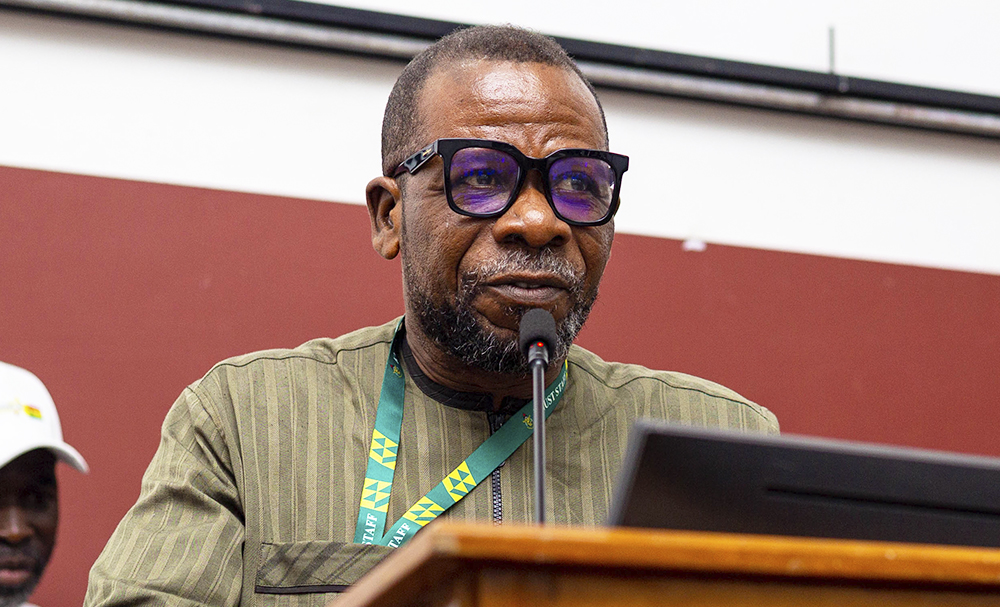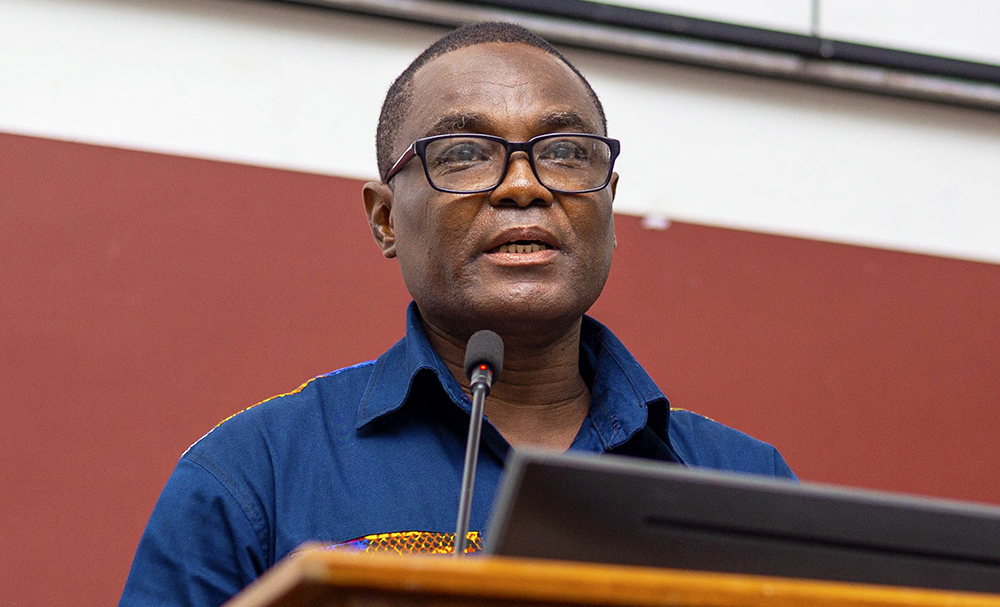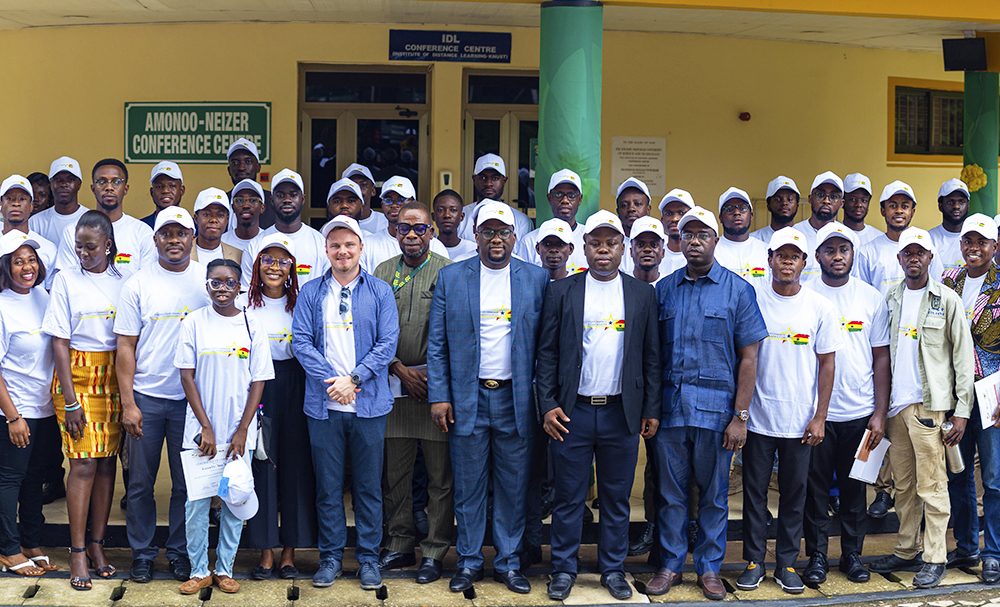Sixty (60) participants who successfully completed the training in Energy Performance Certification (EPC) for Buildings Scheme in Ghana have graduated as Energy Performance Assessors on Tuesday, 25th June, 2024 at the Amonoo-Neizer Conference Centre at KNUST.
The newly certified assessors, trained to enhance the energy performance of one hundred and twenty (120) public buildings in Ghana, were drawn from Sustainable Energy Service Centres at the Kwame Nkrumah University of Science and Technology (KNUST), Kumasi, Accra Technical University (ATU), and the University of Energy and Natural Resources (UNER), Sunyani. These centres operate under the Renewable Energy and Energy Efficiency for Climate Protection (SE4C) Project, supported by GIZ. They are tasked with training Energy Performance Assessors (EPAs) and evaluating the energy performance of public buildings.

In his welcome address, Professor George Yaw Obeng, a Professor at the Department of Mechanical Engineering, KNUST expressed his appreciation to the partner institutions (GIZ, Energy Commission, Ghana, and Ministry of Energy) and sponsors of the Sustainable Energy for Climate Protection Project (SE4C) for their immense support in organising this event. He noted that the training has equipped the participants with the knowledge and skills necessary to assess and improve the energy efficiency of buildings, focusing on new concepts, applications, and best practices in energy performance certification. According to Professor Obeng, energy performance of buildings is an important factor in monitoring how much energy a building consumes, as well as the extent of the building's emissions of polluting greenhouse gas into the environment. He believes that the knowledge and skills acquired from the training will significantly improve their practical experience in assessing energy performance in Ghana and Africa. ‘Your capacity and capability will help optimize indoor air quality, thermal comfort, lighting levels, and acoustics. By showcasing your capabilities to key stakeholders in the building industry, you can create opportunities to upskill and expand your expertise,’ he said.
Dr. Richard Opoku, the Centre Manager at KNUST, outlined future steps, including integrating EPC training into existing programmes through MoUs and approval from the Energy Commission, as well as publishing results from EPC activities. He advised the graduates to be ambassadors of sustainable energy efficiency.

The Keynote Speaker for the ceremony, Mr. Kennedy Amankwah a representative from the Energy Commission, Ghana, indicated that the Energy Performance Certification is a key policy instrument that can assist in reducing energy consumption of buildings in Ghana. He added that economically, EPC enhances energy efficiency, can lower individual utility bills, create jobs, and help stabilise electricity prices in homes.
Mr. Amankwah stated that the collaboration between the Energy Commission, GIZ and the Energy Centres has birthed the deployment of the EPC system in Ghana by developing EPC methodology, EPC calculation tool, database, and trained assessors. He urged the newly trained assessors to accurately collect information on the building characteristics, energy systems and consumption and undertake energy performance of buildings.

Mr. Jonas Renner, representing GIZ, provided an overview of Energy Performance Certification in Buildings. He emphasized that the training, conducted under the guidance of GIZ consultants in a Trainer of Trainers (TOT) session, aimed to equip professionals with the skills to evaluate and improve building energy performance. He mentioned that by focusing on specific energy consumption (SEC) as a key metric, Ghana demonstrates its commitment to promoting environmentally friendly practices and reducing energy consumption in the public sector. He revealed that the relevance of EPC in the context of Ghana would serve as a new profession or business line for independent experts and companies. Additionally, he said that finalisation and implementation of EPC regulation was the way forward of energy efficiency policy development.
Other Centre Directors and Managers from UNER and ATU also gave some brief remarks and solidarity messages. The inaugural class of energy performance assessors received certificates for the successful completion of the training.

















